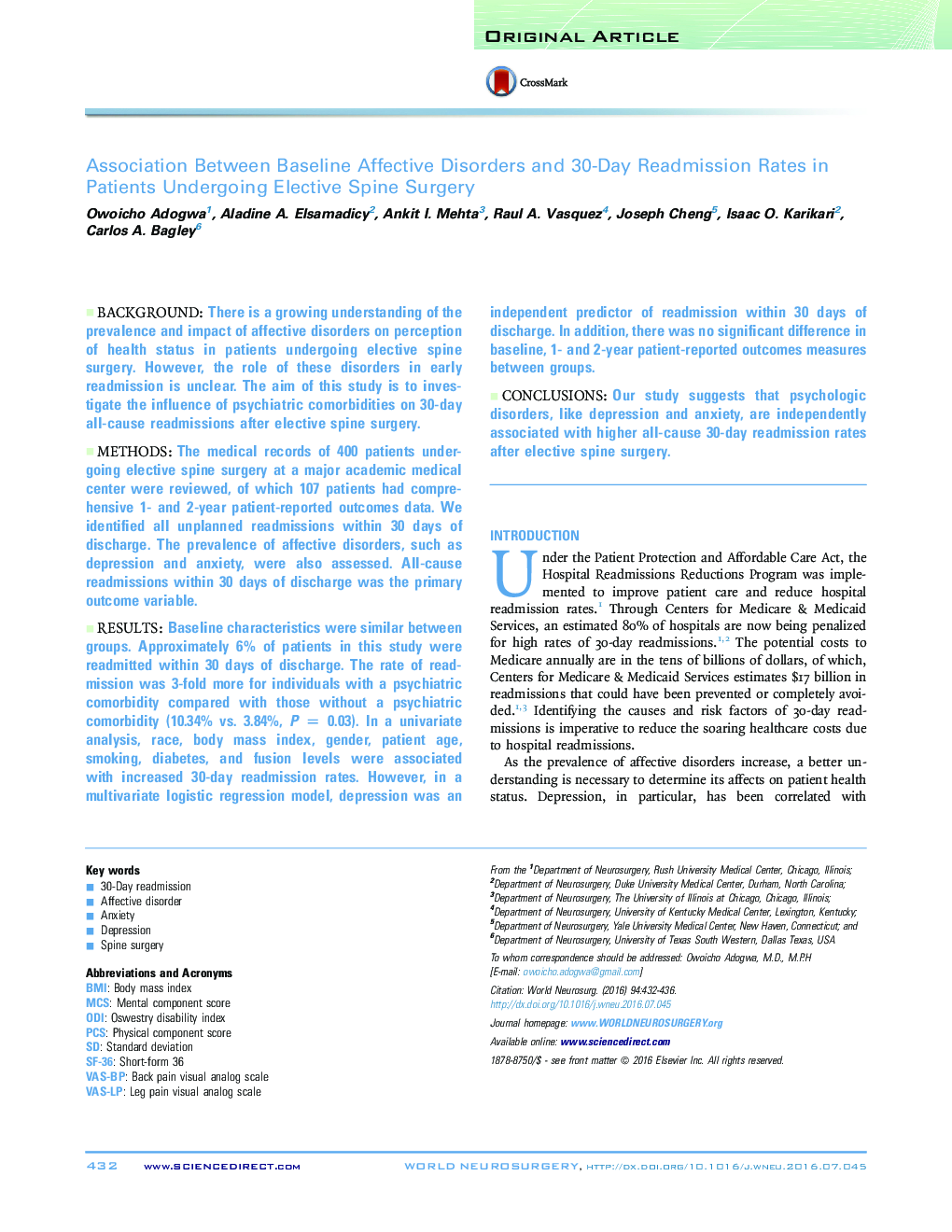| Article ID | Journal | Published Year | Pages | File Type |
|---|---|---|---|---|
| 3094630 | World Neurosurgery | 2016 | 5 Pages |
BackgroundThere is a growing understanding of the prevalence and impact of affective disorders on perception of health status in patients undergoing elective spine surgery. However, the role of these disorders in early readmission is unclear. The aim of this study is to investigate the influence of psychiatric comorbidities on 30-day all-cause readmissions after elective spine surgery.MethodsThe medical records of 400 patients undergoing elective spine surgery at a major academic medical center were reviewed, of which 107 patients had comprehensive 1- and 2-year patient-reported outcomes data. We identified all unplanned readmissions within 30 days of discharge. The prevalence of affective disorders, such as depression and anxiety, were also assessed. All-cause readmissions within 30 days of discharge was the primary outcome variable.ResultsBaseline characteristics were similar between groups. Approximately 6% of patients in this study were readmitted within 30 days of discharge. The rate of readmission was 3-fold more for individuals with a psychiatric comorbidity compared with those without a psychiatric comorbidity (10.34% vs. 3.84%, P = 0.03). In a univariate analysis, race, body mass index, gender, patient age, smoking, diabetes, and fusion levels were associated with increased 30-day readmission rates. However, in a multivariate logistic regression model, depression was an independent predictor of readmission within 30 days of discharge. In addition, there was no significant difference in baseline, 1- and 2-year patient-reported outcomes measures between groups.ConclusionsOur study suggests that psychologic disorders, like depression and anxiety, are independently associated with higher all-cause 30-day readmission rates after elective spine surgery.
